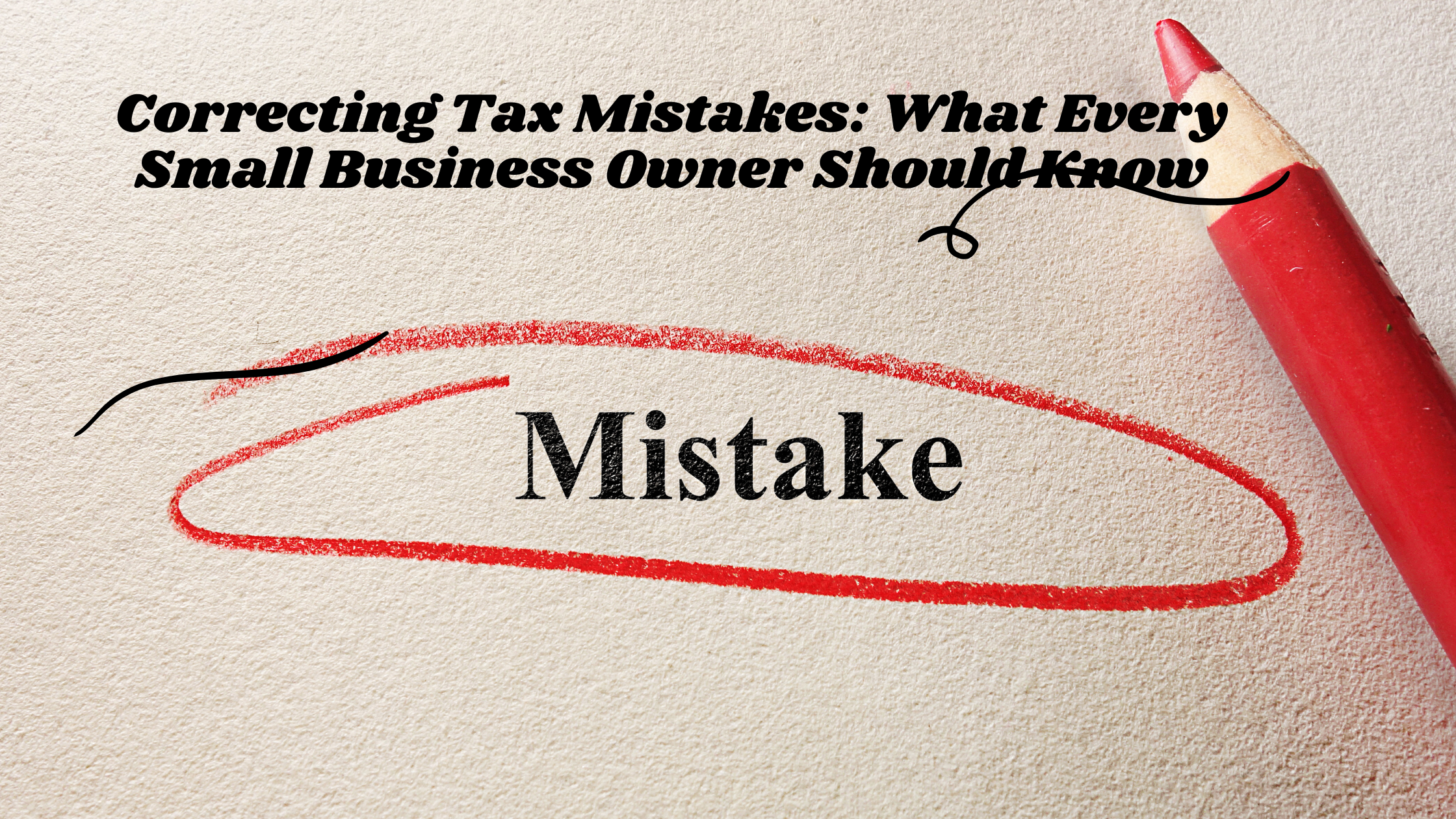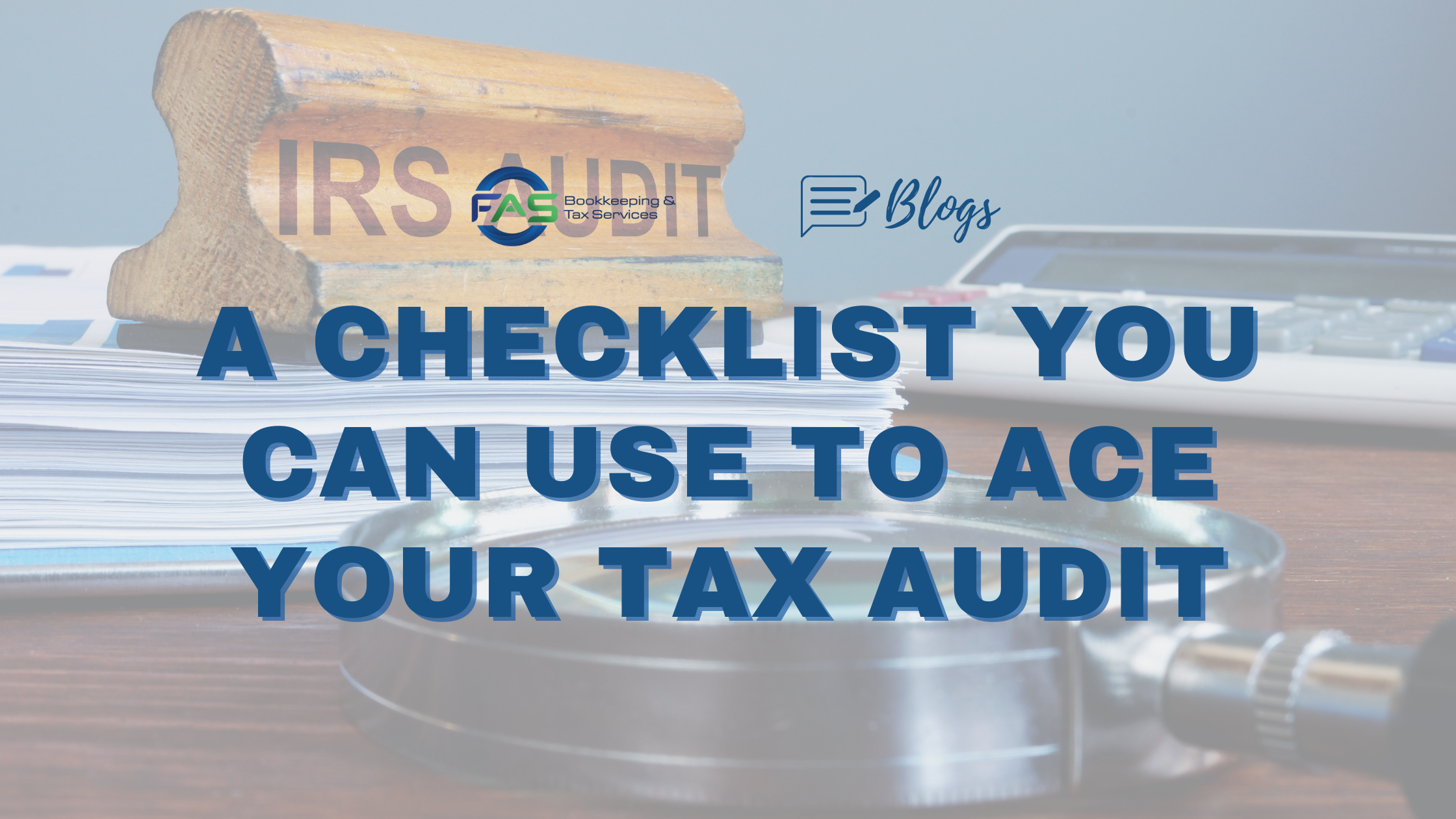A Checklist You Can Use to Ace Your Tax Audit
Depending on the audit’s scope and your preparedness level, you may spend countless hours compiling documents to satisfy the auditor’s requests if you are selected for an audit.
If your organization is one of the lucky ones, though, you can minimize the negative effects of this serious situation by taking the right measures.
1. Relax!
When receiving an audit notification from the IRS, you may believe the agency is out to get you. Keep in mind, however, that comprehensive field audits are rare.
Most audits today are correspondence audits, which are identical to error corrections. The IRS may request supporting papers for reports on your return or send you an invoice for extra tax due to a missing 1099 or math error. If you have the documents, mail them in and close your file.
2. Gather backup records and reports.
If you’re selected for a field audit, the IRS will request your documentation. You may require a receipt, bill, canceled check, contract, loan agreement, travel log, or employment file.
Gather documents, reports, and backups. If you use a cloud accounting solution, preparing your profit and loss statement and other reports should be easy. Keep the original bank statements, receipts, and other documentation for your records.
Track unexpected deductions such as excessive meals, entertainment, and travel. IRS auditors evaluate a huge number of returns to determine average business income and spending, which are prone to abuse.
Excessive entertainment and travel expenses sometimes have justifiable reasons, so keep note of them for audits.
Business owners that keep thorough, orderly records will be in a better position than those who must comb through piles of documentation for the auditor.
3. Look for Additional Deductions
If you omitted specific income or claimed deductions for which you weren’t eligible, the IRS will assess additional tax and interest from the due date and sanctions may be imposed.
However, before the auditor seals the file, double-check for deductions that could reduce taxable income.
Many taxpayers also overlook business mileage, home office expenses, charitable contributions, and PayPal or credit card payments.
Examine your Expense Report and compare it to your monthly bank and credit card statements. Include documentation for overlooked deductions with the documents requested by the auditor. If you can demonstrate sufficient reasonable expenses, the auditor may determine you are entitled to repayment.
4. Creatively substantiate deductions
Maybe you didn’t keep good records during the audited year. Even without receipts and records, you can claim deductions.
IRS claims are routinely verified using third-party documentation, oral testimony, and other methods. Using your calendar, Google maps, and client data, you may be able to recreate a mileage log if you didn’t keep one.
5. Next Steps: TAKE IT TO THE PROS
If you’re nervous about talking to an IRS auditor, consult a professional.
Hiring a tax professional costs money, but it relieves you of paperwork responsibilities. Furthermore, specialists are familiar with tax legislation and IRS audits.
In a field audit, the auditor will interview you (or your representative) about your returns. Be honest and detailed, but avoid unnecessary information. If the auditor finds something wrong, an audit that begins with one issue may expand to other issues, other tax years, and even other people’s and businesses’ tax returns.
By letting a professional help you, you can avoid making mistakes that can make audits drag on.
Have peace of mind and let us help you be IRS audit ready! Contact us today to learn more.





